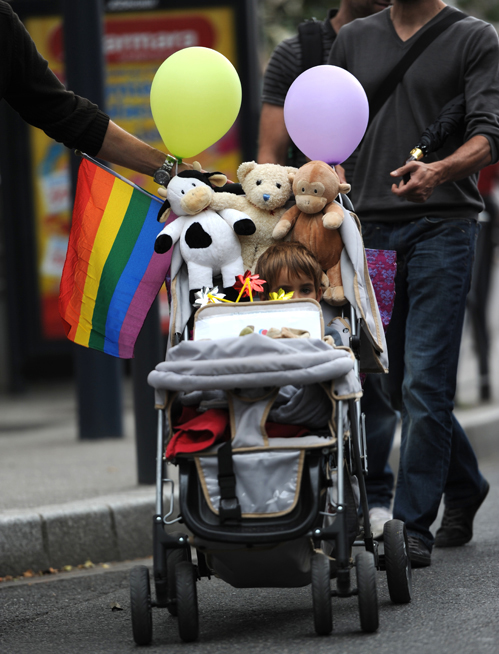| << Chapter < Page | Chapter >> Page > |


Marriage and family are key structures in most societies. While the two institutions have historically been closely linked in American culture, their connection is becoming more complex. The relationship between marriage and family is an interesting topic of study to sociologists.
What is marriage? Different people define it in different ways. Not even sociologists are able to agree on a single meaning. For our purposes, we’ll define marriage as a legally recognized social contract between two people, traditionally based on a sexual relationship and implying a permanence of the union. In practicing cultural relativism, we should also consider variations, such as whether a legal union is required (think of “common law” marriage and its equivalents), or whether more than two people can be involved (consider polygamy). Other variations on the definition of marriage might include whether spouses are of opposite sexes or the same sex, and how one of the traditional expectations of marriage (to produce children) is understood today.
Sociologists are interested in the relationship between the institution of marriage and the institution of family because, historically, marriages are what create a family, and families are the most basic social unit upon which society is built. Both marriage and family create status roles that are sanctioned by society.
So what is a family? A husband, a wife, and two children—maybe even a pet—has served as the model for the traditional American family for most of the 20th century. But what about families that deviate from this model, such as a single-parent household or a homosexual couple without children? Should they be considered families as well?
The question of what constitutes a family is a prime area of debate in family sociology, as well as in politics and religion. Social conservatives tend to define the family in terms of structure with each family member filling a certain role (like father, mother, or child). Sociologists, on the other hand, tend to define family more in terms of the manner in which members relate to one another than on a strict configuration of status roles. Here, we’ll define family as a socially recognized group (usually joined by blood, marriage, or adoption) that forms an emotional connection and serves as an economic unit of society. Sociologists identify different types of families based on how one enters into them. A family of orientation refers to the family into which a person is born. A family of procreation describes one that is formed through marriage. These distinctions have cultural significance related to issues of lineage.
Drawing on two sociological paradigms, the sociological understanding of what constitutes a family can be explained by symbolic interactionism as well as functionalism. These two theories indicate that families are groups in which participants view themselves as family members and act accordingly. In other words, families are groups in which people come together to form a strong primary group connection, maintaining emotional ties to one another over a long period of time. Such families may include groups of close friends or teammates. In addition, the functionalist perspective views families as groups that perform vital roles for society—both internally (for the family itself) and externally (for society as a whole). Families provide for one another’s physical, emotional, and social well-being. Parents care for and socialize children. Later in life, adult children often care for elderly parents. While interactionism helps us to understand the subjective experience of belonging to a “family,” functionalism illuminates the many purposes of families and their role in the maintenance of a balanced society (Parsons and Bales 1956). We will go into more detail about how these theories apply to family in.

Notification Switch
Would you like to follow the 'Introduction to sociology' conversation and receive update notifications?